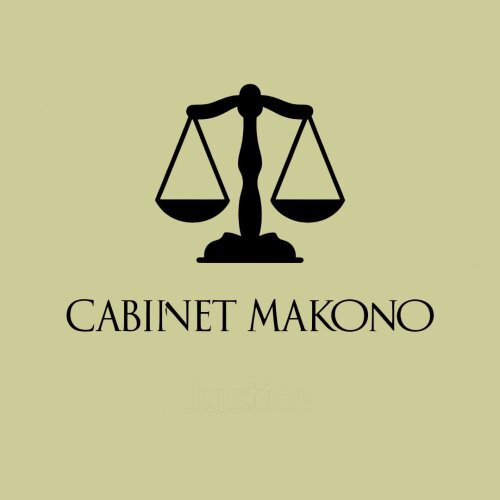Best Oil, Gas & Energy Lawyers in DR Congo
Share your needs with us, get contacted by law firms.
Free. Takes 2 min.
Or refine your search by selecting a city:
List of the best lawyers in DR Congo
About Oil, Gas & Energy Law in DR Congo
The Democratic Republic of Congo (DRC) is a country rich in natural resources, particularly in the field of oil, gas, and other forms of energy. Known for its vast mineral wealth, the country has significant reserves of oil and potential for gas production. The energy sector in the DRC is crucial not only for national development but also for global markets, given the increasing demand for energy resources. The legal framework governing the oil, gas, and energy industries is complex, encapsulating various rules and regulations that aim to balance the interests of the state, investors, and local communities.
Why You May Need a Lawyer
The oil, gas, and energy sectors in the DRC present numerous legal challenges and opportunities for businesses, investors, and individuals. Here are some common situations where legal help might be necessary:
- Negotiating contracts and agreements for exploration, production, and distribution.
- Compliance with environmental regulations and safety standards.
- Dealing with permits and licenses required for operation.
- Resolving disputes between companies or with the government.
- Navigating the taxation and royalty frameworks specific to the energy sector.
- Understanding local laws and regulations affecting foreign investment.
- Protection of intellectual property related to energy technologies and innovations.
- Engagement with community relations and social responsibility initiatives.
- Addressing employment and labor issues within the sector.
- Handling mergers, acquisitions, and divestitures in the sector.
Local Laws Overview
In the DRC, the oil, gas, and energy sectors are governed by a set of key laws and regulations that are essential to understanding the legal landscape:
- Hydrocarbons Law: Establishes the framework for the exploration and exploitation of hydrocarbons, defining the licensing process and the role of state-owned enterprises.
- Mining Code: While primarily focused on minerals, this code also affects gas extraction due to the overlap in resources.
- Environmental Protection Law: Mandates the sustainability practices required of companies operating in the energy sector.
- Investment Code: Provides guidelines on foreign investment, including incentives and legal protections.
- Taxation Laws: Outline the fiscal responsibilities of companies, including royalties and other levies specific to energy production.
- Labor Regulations: Govern employment practices and worker rights within the sectors.
Frequently Asked Questions
What is required to obtain an oil or gas exploration license in the DRC?
Obtaining a license involves a bidding process organized by the Ministry of Hydrocarbons, compliance with environmental impact assessments, and negotiations of contractual terms with the government.
How does the DRC government regulate foreign investment in the energy sector?
The Investment Code provides a structured framework encouraging foreign investment with various incentives, while also ensuring compliance with local laws and regulations.
What taxes are applicable to oil and gas companies in the DRC?
Taxes include corporate income tax, surface fees, production royalties, and custom duties, among others. Specific rates and obligations are determined during contract negotiations.
Are there restrictions on foreign ownership of oil and gas assets?
While the DRC encourages foreign investment, partnerships with state-owned enterprises are often required, and majority foreign ownership may be restricted in certain areas.
What environmental regulations must oil and gas companies adhere to?
Companies must conduct environmental impact assessments and adhere to regulations aimed at minimizing pollution, resource depletion, and ensuring site rehabilitation.
What role do community relations play in the sector?
Community relations are crucial, with companies often required to implement social responsibility programs to benefit local communities, thereby mitigating potential conflicts.
Can land disputes affect energy projects?
Yes, unclear land ownership and competing claims can lead to disputes, emphasizing the need for clear agreements and community engagement from the outset.
What happens in case of a legal dispute between companies?
Disputes are often settled through arbitration or litigation, with the choice of legal venue sometimes stipulated in the contractual agreements.
How is renewable energy being integrated into the DRC's energy sector?
The government is promoting renewable energy projects, with legal frameworks being developed to facilitate investments in solar, hydroelectric, and other renewable sources.
What is the role of the Ministry of Hydrocarbons?
The Ministry regulates the sector, overseeing licensing, ensuring compliance with laws, and representing the state in negotiations and international collaborations.
Additional Resources
For those seeking further information, consider engaging with the following resources and organizations:
- Ministry of Hydrocarbons: The government body responsible for oversight and management of the oil and gas sectors.
- National Energy Commission: Provides insights into national energy policies and strategies.
- DRC Chamber of Mines: Offers resources and contacts within the broader mining and energy industry.
- Local Law Firms: Specialized legal practices that can offer tailored advice and representation in the sector.
- Environmental NGOs: Organizations focusing on sustainability and the environmental impact of energy projects.
Next Steps
If you need legal assistance in the oil, gas, and energy sector in the DRC, consider the following steps:
- Identify your specific legal needs and gather all relevant documentation.
- Research and contact local law firms with expertise in energy law.
- Schedule consultations to discuss your case and evaluate potential legal strategies.
- Ensure you understand the fees and terms of engagement before hiring a lawyer.
- Maintain open communication with your legal adviser to stay informed and actively involved in the process.
By taking these steps, you'll be better equipped to navigate the complexities of the legal environment in the DRC's dynamic oil, gas, and energy sectors.
Lawzana helps you find the best lawyers and law firms in DR Congo through a curated and pre-screened list of qualified legal professionals. Our platform offers rankings and detailed profiles of attorneys and law firms, allowing you to compare based on practice areas, including Oil, Gas & Energy, experience, and client feedback.
Each profile includes a description of the firm's areas of practice, client reviews, team members and partners, year of establishment, spoken languages, office locations, contact information, social media presence, and any published articles or resources. Most firms on our platform speak English and are experienced in both local and international legal matters.
Get a quote from top-rated law firms in DR Congo — quickly, securely, and without unnecessary hassle.
Disclaimer:
The information provided on this page is for general informational purposes only and does not constitute legal advice. While we strive to ensure the accuracy and relevance of the content, legal information may change over time, and interpretations of the law can vary. You should always consult with a qualified legal professional for advice specific to your situation.
We disclaim all liability for actions taken or not taken based on the content of this page. If you believe any information is incorrect or outdated, please contact us, and we will review and update it where appropriate.
Browse oil, gas & energy law firms by city in DR Congo
Refine your search by selecting a city.













